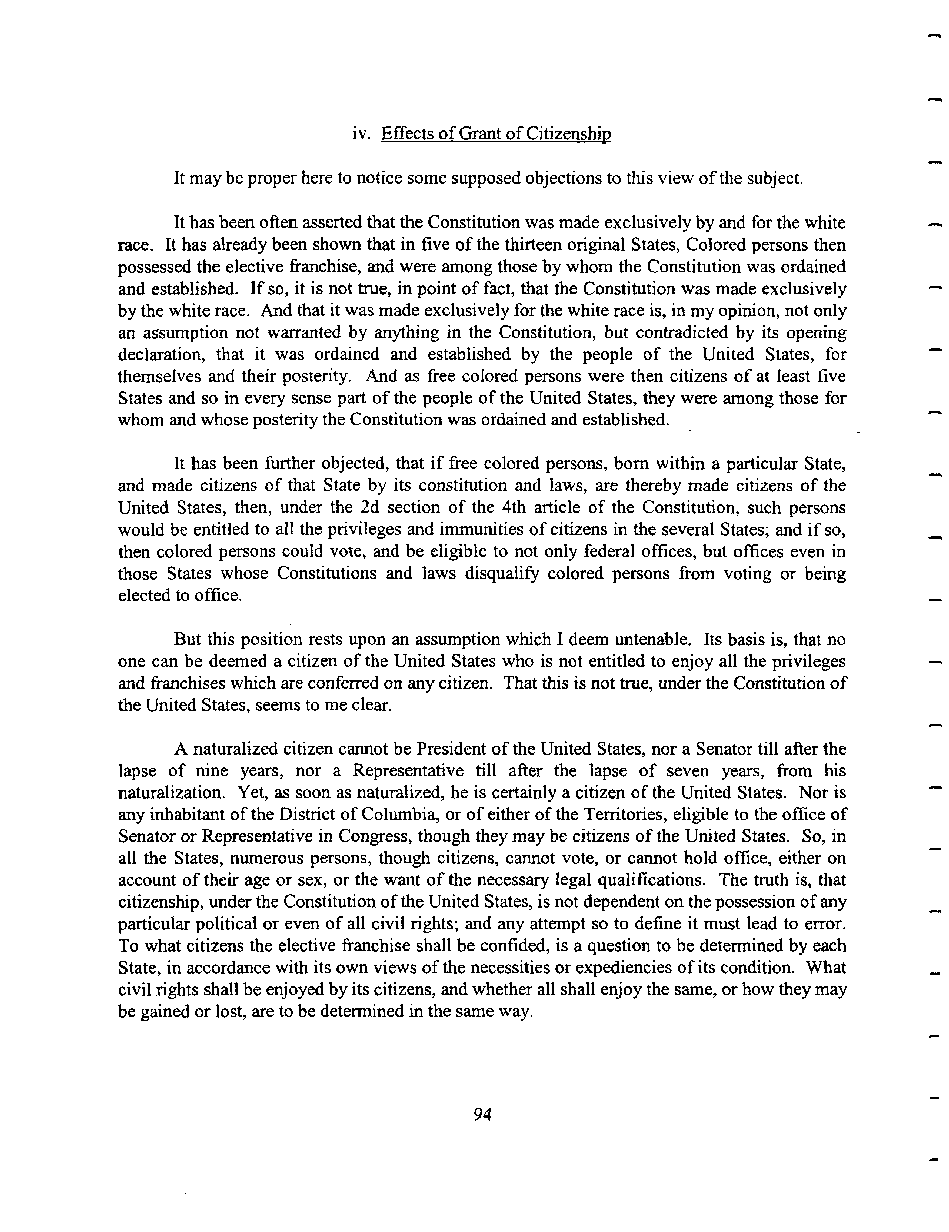|
iv. Effects of Grant of Citizenship
It may be proper here to notice some supposed objections to this view of the subject.
It has been often asserted that the Constitution was made exclusively by and for the white
race. It has already been shown that in five of the thirteen original States, Colored persons then
possessed the elective franchise, and were among those by whom the Constitution was ordained
and established. If so, it is not true, in point of fact, that the Constitution was made exclusively
by the white race. And that it was made exclusively for the white race is, in my opinion, not only
an assumption not warranted by anything in the Constitution, but contradicted by its opening
declaration, that it was ordained and established by the people of the United States, for
themselves and their posterity. And as free colored persons were then citizens of at least five
States and so in every sense part of the people of the United States, they were among those for
whom and whose posterity the Constitution was ordained and established.
It has been further objected, that if free colored persons, born within a particular State,
and made citizens of that State by its constitution and laws, are thereby made citizens of the
United States, then, under the 2d section of the 4th article of the Constitution, such persons
would be entitled to all the privileges and immunities of citizens in the several States; and if so,
then colored persons could vote, and be eligible to not only federal offices, but offices even in
those States whose Constitutions and laws disqualify colored persons from voting or being
elected to office.
But this position rests upon an assumption which I deem untenable. Its basis is, that no
one can be deemed a citizen of the United States who is not entitled to enjoy all the privileges
and franchises which are conferred on any citizen. That this is not true, under the Constitution of
the United States, seems to me clear.
A naturalized citizen cannot be President of the United States, nor a Senator till after the
lapse of nine years, nor a Representative till after the lapse of seven years, from his
naturalization. Yet, as soon as naturalized, he is certainly a citizen of the United States. Nor is
any inhabitant of the District of Columbia, or of either of the Territories, eligible to the office of
Senator or Representative in Congress, though they may be citizens of the United States. So, in
all the States, numerous persons, though citizens, cannot vote, or cannot hold office, either on
account of their age or sex, or the want of the necessary legal qualifications. The truth is, that
citizenship, under the Constitution of the United States, is not dependent on the possession of any
particular political or even of all civil rights; and any attempt so to define it must lead to error.
To what citizens the elective franchise shall be confided, is a question to be determined by each
State, in accordance with its own views of the necessities or expediencies of its condition. What
civil rights shall be enjoyed by its citizens, and whether all shall enjoy the same, or how they may
be gained or lost, are to be determined in the same way.
94
�
|

